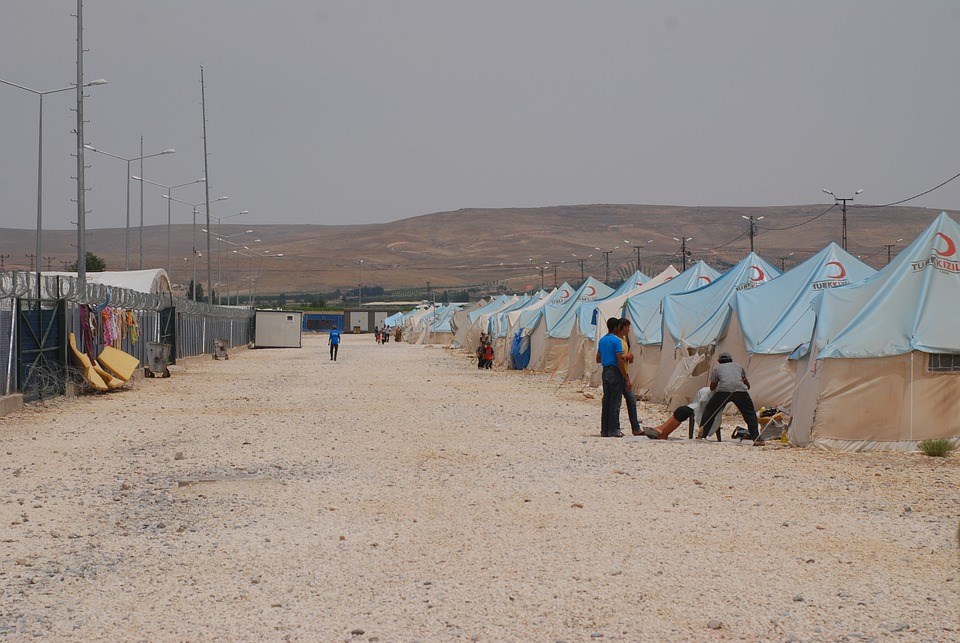When it comes to welcoming refugees, more Canadians are willing to open their hearts and homes to those fleeing the Russian invasion of Ukraine than those escaping the Syrian civil war, according to a new study by the Angus Reid Institute.
The study found that four-in-five Canadians support the Liberal government’s plan to allow into the country in the coming weeks and months, a considerably higher level of support than was shown for Syrian refugees in 2015.
“At that time, the government committed to settling 25,000 Syrians in Canada, which was supported by (only) 39 per cent of Canadians. Support for that influx of refugees eventually rose to 52 per cent in February 2016 but remained far short of the enthusiasm seen for accepting Ukrainians fleeing war now,”
In October 2015, shortly after Trudeau and the Liberals won a majority government, half of Canadians (51per cent ) said they opposed bringing 25,000 Syrian refugees into the country, with almost all Conservative Party of Canada (CPC) supporters against the plan.
In comparison, more than half of past Liberal (55per cent ) and New Democratic Party (53 per cent ) voters were in favour of resettling them.
Overall support at the time for welcoming a limited number of Syrians was approximately half of the support now for bringing in an unlimited number of Ukrainians, the study found.
Eventually, more than 73,000 Syrian refugees resettled in Canada, according to the study’s authors, who conducted an online survey from March 10 to 15 among a representative randomized sample of 4,292 Canadian adults.
Different levels of acceptance
In an interview with New Canadian Media, Shachi Kurl, president of the Angus Reid Institute, said the first step in public opinion research is to establish the “what” before the “why.”
“The ‘what’ tells us that there is a massive and marked difference in the level of acceptance and enthusiasm Canadians feel for refugees who wish to come from Ukraine versus those escaping the civil war in Syria,” she said.
“While we do not have data to explain the ‘why,’ there are some possibilities to consider. Could it be that Canadians feel a greater connection to the people of Ukraine, given the 1.4 million strong diaspora in this country, whose roots go back more than 100 years? This would be understandable.”
Kurl says the of the Russian attack could also be a factor. The tenor of the reporting, at least initially, as well as the volume of coverage, has differed from wars and attacks in the Middle East, she says.
“It is difficult not to take into account comments from reporters such as ‘this is a relatively civilized, relatively European … city’ from CBS’s Charlie D’Agata or the BBC interviewee who said, ‘I see European people with blue eyes and blonde hair … being killed every day,'” Kurl says.
“To what extent is this kind of thinking also influencing Canadian opinion? Does this so-called ‘familiarity’ make Ukrainian refugees more ‘normal’; more ‘human’ in their eyes?”
Unequal treatment
that while many are applauding Canada’s outpouring of humanitarian support for the nearly two million refugees who have fled Ukraine since the Russian attack of Feb. 24, Canadians remain sharply critical of the unequal treatment given to displaced people from other war-torn lands such as Afghanistan, Syria, Palestine and Iraq.
“This is racism to the core,” said Professor Nour El Kadri, of the Telfer School of Management at the University of Ottawa
He pointed out that while Canada promised to take in 25,000 Syrian refugees during the Syrian crisis in 2015 and 40,000 Afghans after the fall of Kabul to the Taliban, it has not set any limit for Ukrainian refugees.
“We need to sympathize with and support refugees from anywhere, with no exception,” El Kadri said.
Other key findings in the Angus Reid Institute study released today include:
- Nine-in-10 past Liberal (90 per cent ) and NDP voters (92 per cent ) support the plan to welcome Ukrainian refugees. Support among past CPC voters is lower (75 per cent ) but still at firm majority levels.
- Two-in-five Canadians (43 per cent ) would support Canada in actively campaigning for Ukraine to join NATO.
- Half of Canadians (49 per cent ) say that Canada’s international reputation has worsened over the past decade, while 14 per cent say it has improved, and one-in-three (33 per cent ) do not think it has changed.



